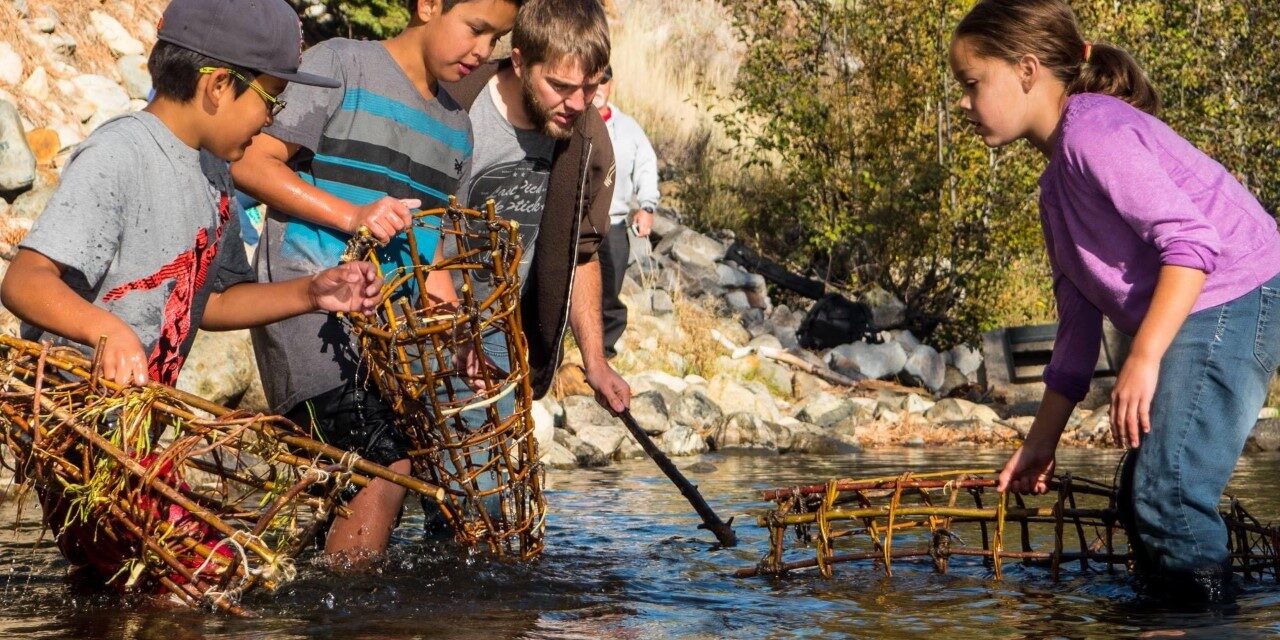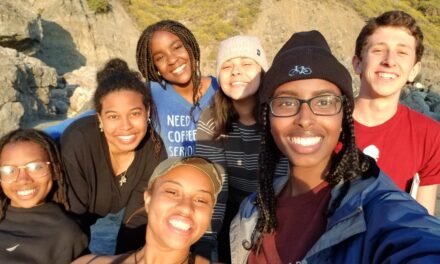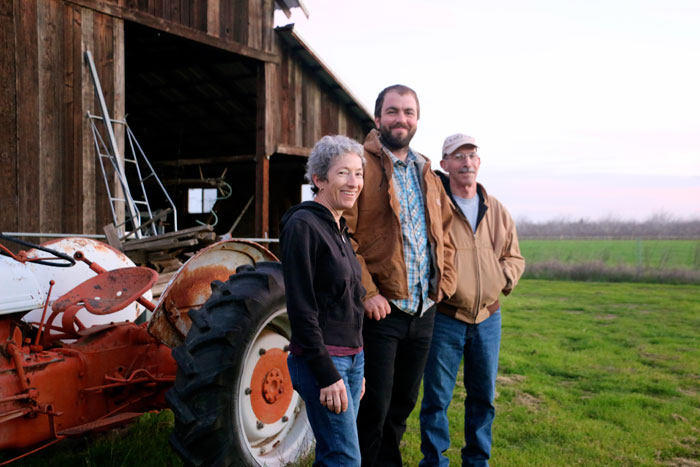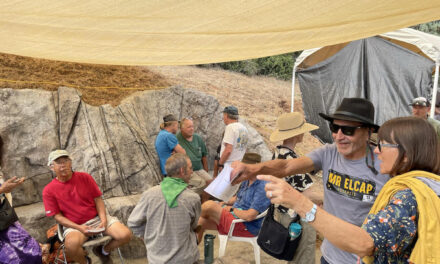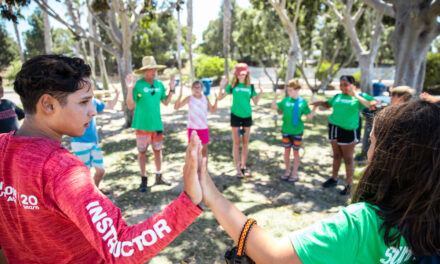- Death Valley’s Battle With Climate Extremes - 01/01/2024
- The Future of Homewood - 12/05/2023
- Kula Cloth - 10/18/2023
The Washoe Cultural And Outdoor Expedition Program: How Paula smith is creating a better future for Washoe youth through outdoor exploration
Every September, thousands of Kokanee salmon begin their arduous journey up Taylor Creek, at the south end of Lake Tahoe, to spawn. This freshwater version of sockeye salmon likely diverged from its ocean-going relatives about 15,000 years ago. For a month to six weeks every autumn, visitors from around the globe gather to gawk at the schools of silvery redfish, swimming upstream to lay their eggs. Some of those who gather are Washoe Native youth, armed with willow fish traps and homemade spears, whose ancestors fished this same creek, with those same tools, for millennia. The revitalization of traditional fishing is sponsored by the Washoe Tribe’s Cultural & Outdoor Expedition Program. The young folks joining are drawn by the programming, dedication, and kindness of the tribe’s only probation officer, Paula Smith, who has revolutionized treatment for at-risk youth on the reservation.
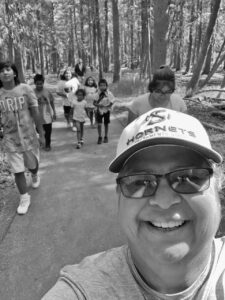
Paula Smith leads Carson youth in Tuolumne meadows hiking to Tenaya lake (Selfie).
Originally from Yerington Nevada, Smith is part Washoe and part Walker River Paiute. Her educational background is in Criminal Justice, but most of her work has been in Recreation. After working as a probation officer in Sacramento and Chief Deputy Probation Officer in Lyon County, she returned to her homeland in 2013 to do a repeat offender program with the Washoe tribe. “I always come back to Indian country because that’s where the help is most needed,” she says.
Her initial efforts to introduce new programming were met with resistance. “When I asked if we can put in a culture, sports, and outdoors component to the probation department, one chairman said ‘why do all the bad kids get to do the fun things?’” Smith sighs at the memory. “I had to explain that every kid on the reservation is at risk.”
“A big part of my work is changing language, changing how we think about this. Adults will say ‘oh, that kid is a trouble maker, they’re a problem kid,‘“ Smith says. “But really, what we need to figure out is what happened to that kid? Maybe they are acting out because they got sexually assaulted, or maybe they don’t want to go home because their dad is drunk and beating up their mom. We need to be asking kids ‘what happened, are you ok or how are you doing?’”
“My original position was as a probation officer,” Smith explains. “In the early years, it was just really more of like a dictatorship, strictly supervision. I made sure they went to school, attended counseling, and did their court orders. I was like reinforcement for the court. There was really no bonding, nothing about improving life skills or social skills or taking care of your body, exercising and eating right.“
Seven years ago she began to introduce cultural and outdoor programming to serve Washoe youth through a grant for juveniles. “Really this came about because the kids needed something more to do,” she says. “It was more outdoors than the cultural stuff at that point, just to get the kids out in the natural environment. We do everything from golfing to hiking to mountain biking, to a ropes course, to white water rafting, and night hikes.” She also brings youth from different tribes together at community unity days and campouts.
These activities do more than expand the young people’s horizons and improve their health. “They form bonds and build camaraderie and learn teamwork,” Smith says. “Our programming covers life skills, nutrition, athletics, and academics, as well as bullying and suicide prevention.”
According to the National Council on Aging, the suicide rate among Native youth is 2.5 times higher than the national average for young people. “Some staff and kids don’t ever leave the reservation. My program is really trying to give these kids a wider experience. A lot of tribal youth don’t even have a parent to take care of them, a lot of them are taken care of by aunties and uncles, grandmas and great grandparents,” explains Smith. “Their parents are out partying, or in and out of jail. There’s a lack of supervision, kids need guidance, they just need some love and structure.”
Smith provides that love and structure. The Cultural and Outdoor Expedition Program she created meets five days a week from the beginning of June, when school ends, until the beginning of August when it starts again. Smith gushes as she describes a recent week with the kids. “So Monday was Nevada beach at Lake Tahoe, Tuesday was the Science and Discovery Museum, Wednesday was a cultural day, Thursday was fishing, Friday was Majestic Fall …”
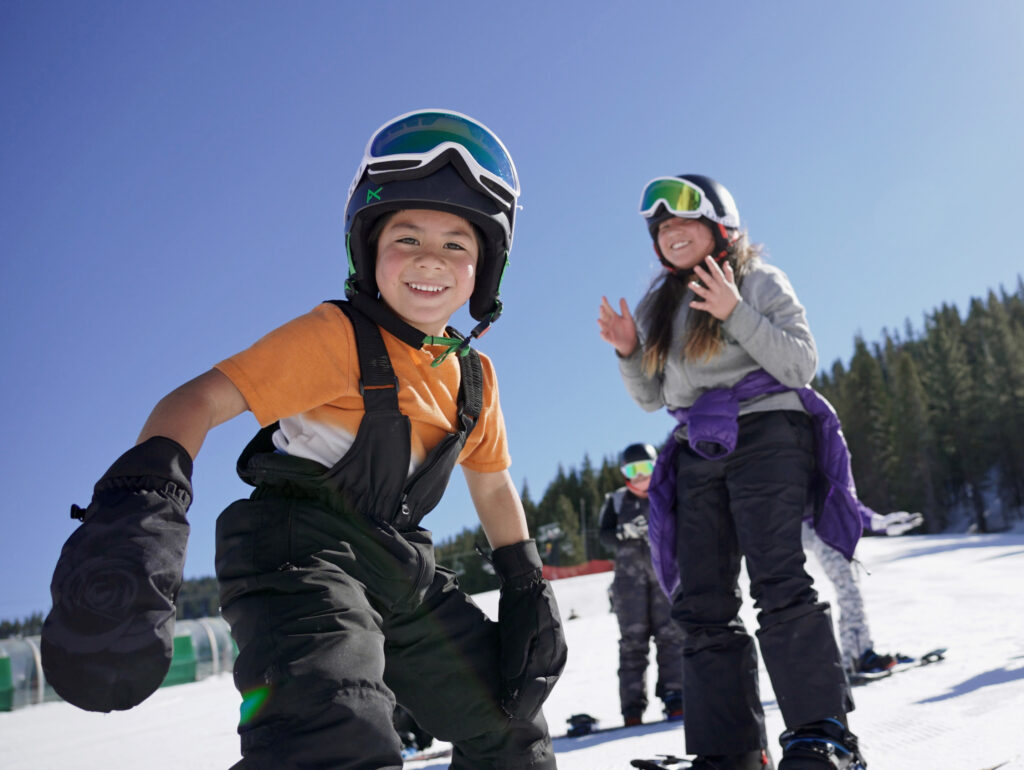
Snowboarding lessons at Palisades with a Share Winter Foundation grant funded program for minority youth (Anthony Cupaiuolo / First Track Productions).
Of course, she needs assistance to provide so many activities, and she’s not afraid to ask for it. “Before I started, there was a lack of collaboration, nobody communicated with each other,” Smith says. Now she works with the Truancy Officer, the Education and Recreation Departments, the Healing Center, and the tribal councils of each of the four Washoe colonies around a common goal. “We collaborate as a group to make all the programming, starting in March to build up for the summer.”
Every week is different, each day is unique. They might visit an amusement park, hike around a lake, play mini golf, visit a celebrity golf tournament to collect autographs, go to the movies, hike up Mt. Grant, swim in Weber reservoir or go mountain biking. Cultural exchange with other tribal groups, like the Walker River Paiute Tribe, helps create lifelong friendships and memories.
“When a kid catches their first fish it’s like the best day of their life,” explains Smith. “They never caught a fish before, just the excitement, you get five or six kids running over to see. The memories that we create for these kids impacts their entire life.”
Creating memories helps bring Native youth back to their heritage. “There’s so much history to bring back to the kids, helping get them involved with their culture and history,” Smith says. “Through our programming, we are remembering our ancestors and standing by our traditions, we are preserving our culture through these kids. They hike and fish in some of these same places where our ancestors hiked and fished.”
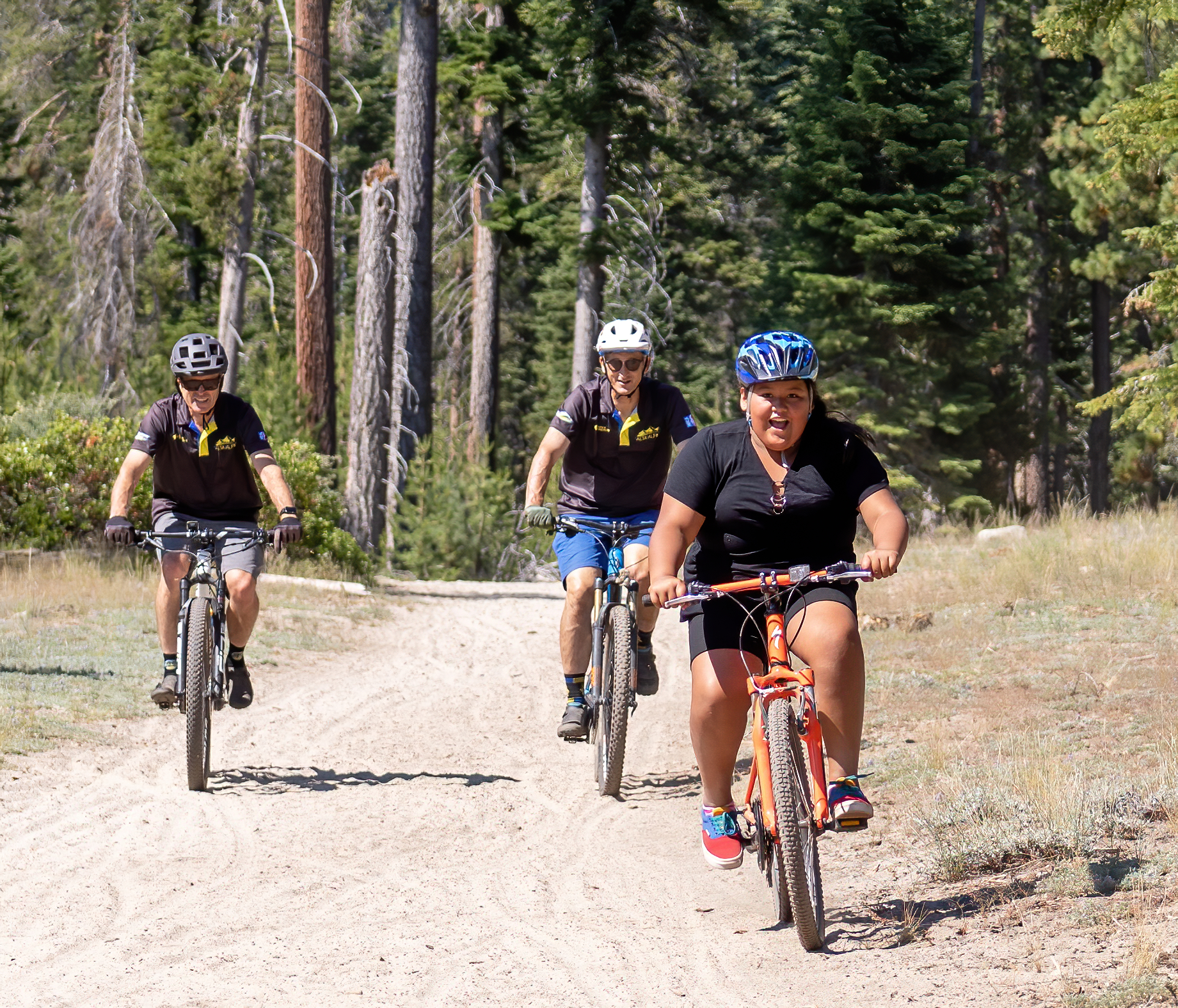
Mountain biking in Meeks meadow during a camp out at Meeks Bay (Anthony Cupaiuolo / First Track Productions)
The Cultural and Outdoor Expedition Program serves 80–120 young people at a time. “Over the course of a year we are probably dealing with about 1,200 juveniles,” says Smith. “Most of the kids we have now are 8-18, but really they can be as young as 5. And some kids have come through the program and even after they’re 18 or 19 they don’t want to leave, so I let them participate as junior staff. They are positive role models for younger kids, it’s good for younger boys to see older males doing good stuff.
Though her title is Probation Officer, Smith explains that the mission of the juvenile probation department is to create cultural programming aimed at preventing juvenile delinquency. “It’s not just for probation kids, sometimes we want to defer youth from formal court proceedings whenever possible,” she says. “We are guiding youth towards broader perspectives and self-discovery through adventures in the great outdoors.”
After a long career, Smith sometimes feels ready for rest, but the kids’ smiles keep bringing her back. “If it wasn’t for my summer programs I’d probably retire,” she admits. “These little native kids need this. Our program is something they look forward to every summer, and this might be the only good thing they have in their lives right now. Maybe they don’t feel safe at home because of drugs or alcohol or domestic violence, maybe there’s not a lot of food at home or they don’t even have shoes. For these at-risk youth, we are creating a safe haven.”
To learn how you can support this work, email paula.smith@washoetribe.us
Main image: Youth use traditional tools to fish for Kokanee salmon (Rebecca Byerly / Women of the Mountain)
Read other article by Leonie Sherman here.

